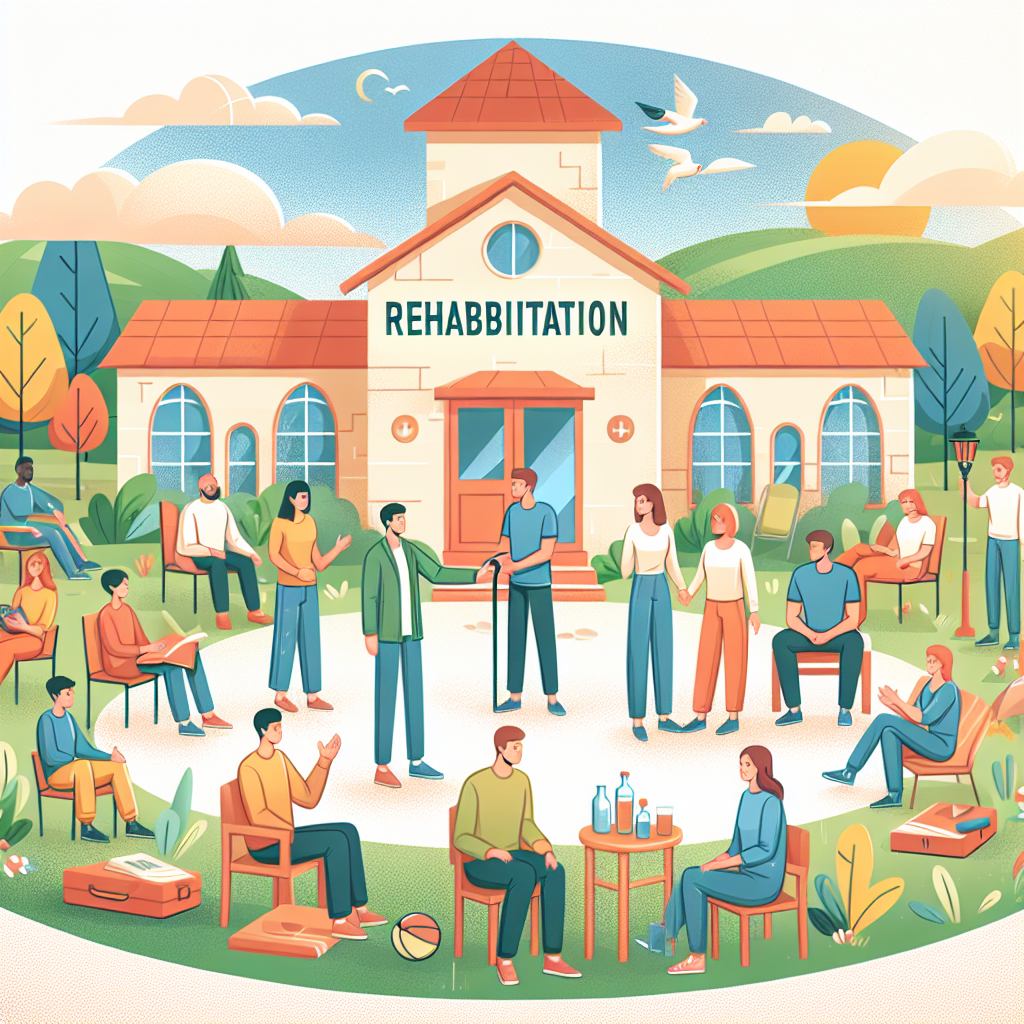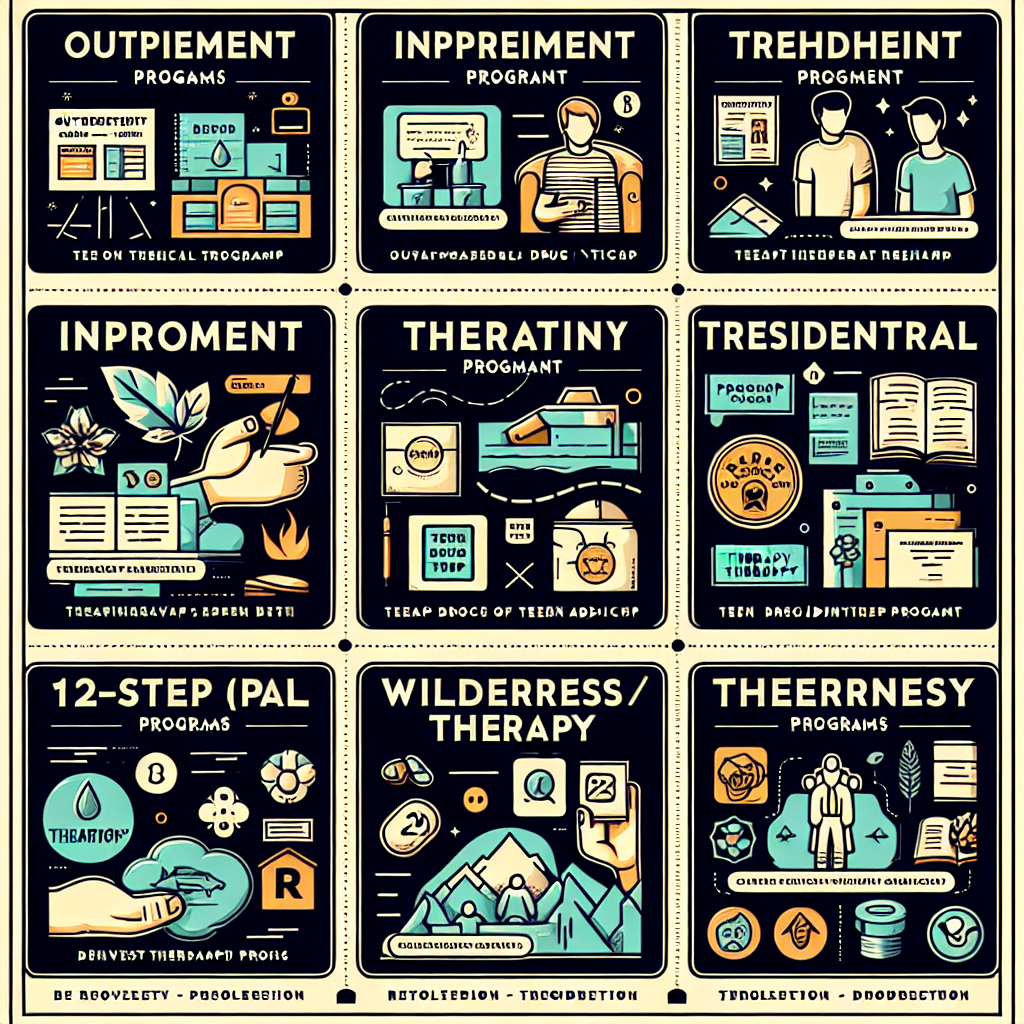-
Table of Contents
“Strength in Unity: Empowering Teen Recovery Through Family Support”
Introduction
The role of family in teen rehab for eating disorders is pivotal, encompassing emotional support, active participation in therapy, and fostering a nurturing home environment. Families are integral to the recovery process, as they help reinforce healthy behaviors, provide motivation, and ensure continuity of care post-treatment. By engaging in family-based therapy, parents and siblings can better understand the complexities of eating disorders, learn effective communication strategies, and develop skills to support their loved one’s journey towards recovery. This collaborative approach not only aids in the teen’s healing but also strengthens familial bonds, creating a supportive network essential for long-term success.
The Importance of Family Support in Teen Rehab for Eating Disorders
The journey through teen rehab for eating disorders is a challenging and multifaceted process, one that requires a comprehensive approach to treatment. Among the various elements that contribute to successful recovery, family support stands out as a cornerstone. The importance of family involvement cannot be overstated, as it plays a crucial role in both the emotional and practical aspects of a teen’s rehabilitation journey. By fostering a supportive and understanding environment, families can significantly enhance the effectiveness of treatment and help their loved ones navigate the path to recovery.
To begin with, the emotional support provided by family members is invaluable. Teens struggling with eating disorders often experience feelings of isolation, shame, and guilt. These emotions can be overwhelming and may hinder their willingness to seek help or fully engage in treatment. When family members offer unconditional love and acceptance, it creates a safe space for the teen to express their fears and vulnerabilities. This emotional safety net can be a powerful motivator, encouraging the teen to confront their disorder and commit to the recovery process.
Moreover, family involvement in rehab programs can help to address underlying issues that may have contributed to the development of the eating disorder. Eating disorders are often symptomatic of deeper psychological or emotional struggles, such as low self-esteem, anxiety, or depression. By participating in family therapy sessions, relatives can gain a better understanding of these underlying issues and learn how to provide appropriate support. This collaborative approach not only aids in the teen’s recovery but also strengthens family bonds, fostering a more cohesive and resilient family unit.
In addition to emotional support, practical assistance from family members is equally important. The road to recovery often involves significant lifestyle changes, including modifications to diet, exercise routines, and daily habits. Family members can play a pivotal role in facilitating these changes by creating a supportive home environment. For instance, they can help by preparing nutritious meals, encouraging healthy eating habits, and promoting positive body image. By modeling healthy behaviors and attitudes, family members can reinforce the lessons learned in rehab and help the teen develop sustainable, long-term habits.
Furthermore, the involvement of family members in the rehab process can enhance the effectiveness of treatment by providing continuity of care. Rehab programs typically offer a structured and supportive environment, but the transition back to everyday life can be challenging. When family members are actively engaged in the treatment process, they are better equipped to support the teen during this critical transition period. They can help to implement the strategies and coping mechanisms learned in rehab, ensuring that the teen continues to make progress even after leaving the treatment facility.
It is also worth noting that family support can have a positive impact on the overall well-being of the teen. Studies have shown that strong family connections are associated with better mental health outcomes and a lower risk of relapse. By fostering a sense of belonging and connectedness, family members can help to build the teen’s resilience and reduce the likelihood of future struggles with eating disorders.
In conclusion, the role of family in teen rehab for eating disorders is multifaceted and profoundly impactful. Through emotional support, practical assistance, and active involvement in the treatment process, family members can significantly enhance the effectiveness of rehab programs and contribute to the long-term recovery of their loved ones. By working together, families can help teens overcome the challenges of eating disorders and build a healthier, more fulfilling future.
How Family Therapy Enhances Recovery in Teen Eating Disorder Treatment
Family therapy plays a pivotal role in the recovery process for teens undergoing treatment for eating disorders. The journey to recovery is often fraught with emotional and psychological challenges, and the involvement of family can significantly enhance the effectiveness of treatment. By fostering a supportive and understanding environment, family therapy helps to address the underlying issues that contribute to eating disorders, thereby promoting long-term recovery.
One of the primary benefits of family therapy is that it provides a safe space for open communication. Eating disorders often thrive in secrecy and isolation, and breaking this cycle is crucial for recovery. Through family therapy sessions, teens and their family members can express their feelings, concerns, and experiences in a controlled and supportive setting. This open dialogue helps to demystify the disorder, reducing the stigma and shame that often accompany it. As a result, teens feel less isolated and more understood, which can be incredibly empowering.
Moreover, family therapy helps to identify and address dysfunctional family dynamics that may contribute to the development or maintenance of an eating disorder. For instance, issues such as parental pressure, sibling rivalry, or unresolved conflicts can exacerbate a teen’s struggle with food and body image. By bringing these issues to light, family therapy enables families to work together to create a healthier and more supportive home environment. This collaborative approach not only aids in the teen’s recovery but also strengthens family bonds, fostering a sense of unity and resilience.
In addition to improving communication and addressing family dynamics, family therapy also equips family members with the tools and strategies they need to support their loved one effectively. Parents and siblings often feel helpless and unsure of how to help a teen struggling with an eating disorder. Family therapy provides education about the nature of eating disorders, helping family members to understand the complexities of the condition. Armed with this knowledge, they can offer more informed and compassionate support, which is crucial for the teen’s recovery journey.
Furthermore, family therapy emphasizes the importance of setting realistic and achievable goals. Recovery from an eating disorder is a gradual process, and it is essential for both the teen and their family to have a clear understanding of what to expect. By setting incremental goals and celebrating small victories, family therapy helps to maintain motivation and momentum. This goal-oriented approach fosters a sense of accomplishment and progress, which can be incredibly motivating for teens and their families alike.
Another significant aspect of family therapy is that it helps to build a network of accountability and encouragement. Recovery from an eating disorder requires consistent effort and commitment, and having a supportive family can make a world of difference. Family members can help to monitor progress, provide encouragement during difficult times, and celebrate milestones along the way. This network of support creates a sense of accountability, making it more likely that the teen will stay on track with their recovery plan.
In conclusion, family therapy is an invaluable component of teen rehab for eating disorders. By fostering open communication, addressing dysfunctional dynamics, providing education, setting realistic goals, and building a network of support, family therapy enhances the recovery process in profound ways. The involvement of family not only aids in the teen’s recovery but also strengthens familial bonds, creating a foundation of love and support that can last a lifetime. Through the collaborative efforts of family therapy, teens struggling with eating disorders can find the strength and resilience they need to overcome their challenges and embrace a healthier, happier future.
Q&A
1. **Question:** How does family involvement impact the success of teen rehab for eating disorders?
**Answer:** Family involvement is crucial in teen rehab for eating disorders as it provides emotional support, helps in understanding the disorder, and reinforces healthy behaviors, significantly improving the chances of recovery.
2. **Question:** What specific roles do family members play in the rehabilitation process for teens with eating disorders?
**Answer:** Family members participate in therapy sessions, help create a supportive home environment, monitor eating habits, and work on improving communication and relationships within the family to support the teen’s recovery.
Conclusion
The role of family in teen rehab for eating disorders is crucial, as family involvement can significantly enhance the effectiveness of treatment. Families provide emotional support, help create a stable and nurturing environment, and can be instrumental in identifying early signs of relapse. Family-based therapies, such as the Maudsley approach, have shown success in empowering parents to take an active role in their child’s recovery. By fostering open communication, understanding, and collaboration, families can help teens develop healthier relationships with food and body image, ultimately contributing to long-term recovery and well-being.



